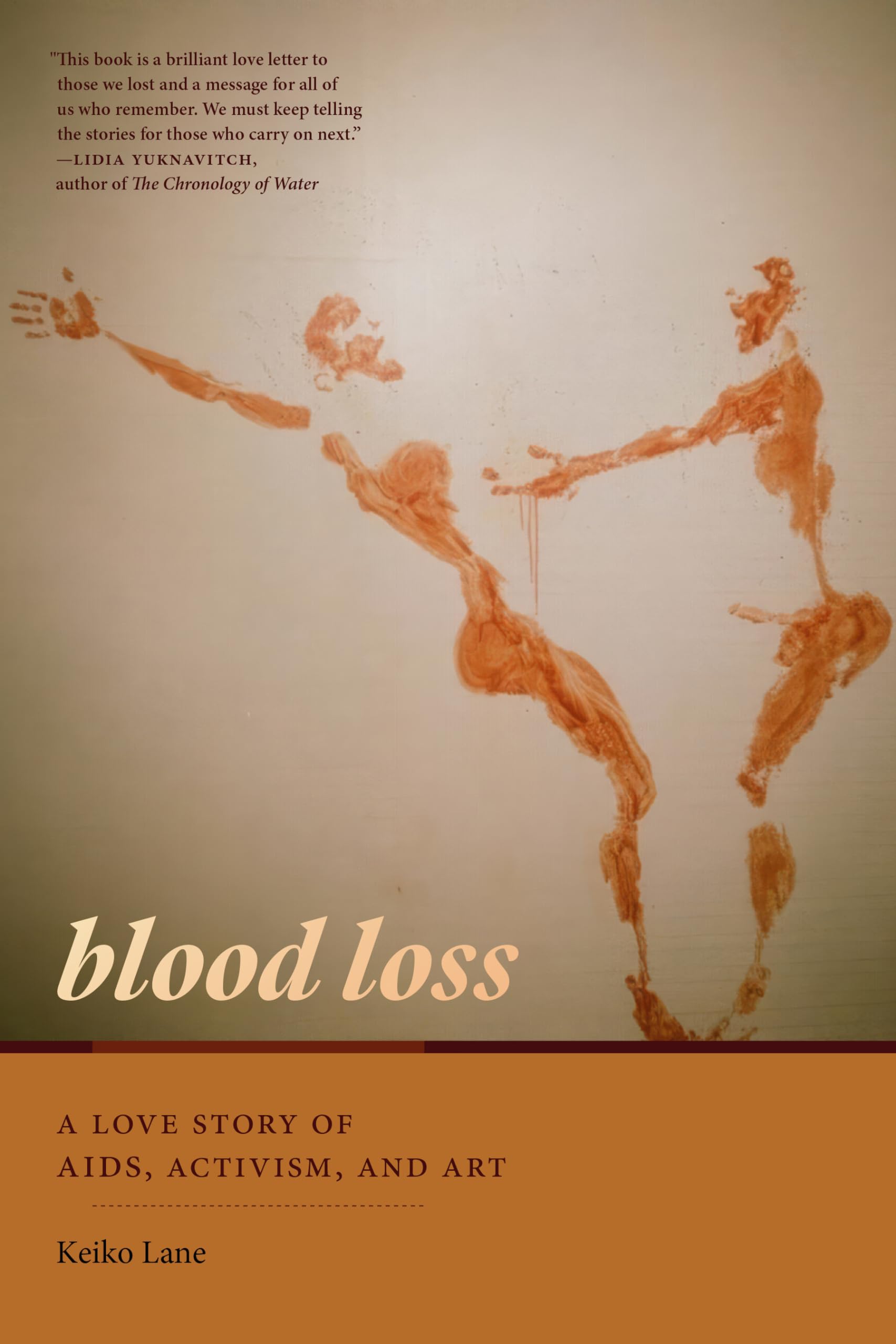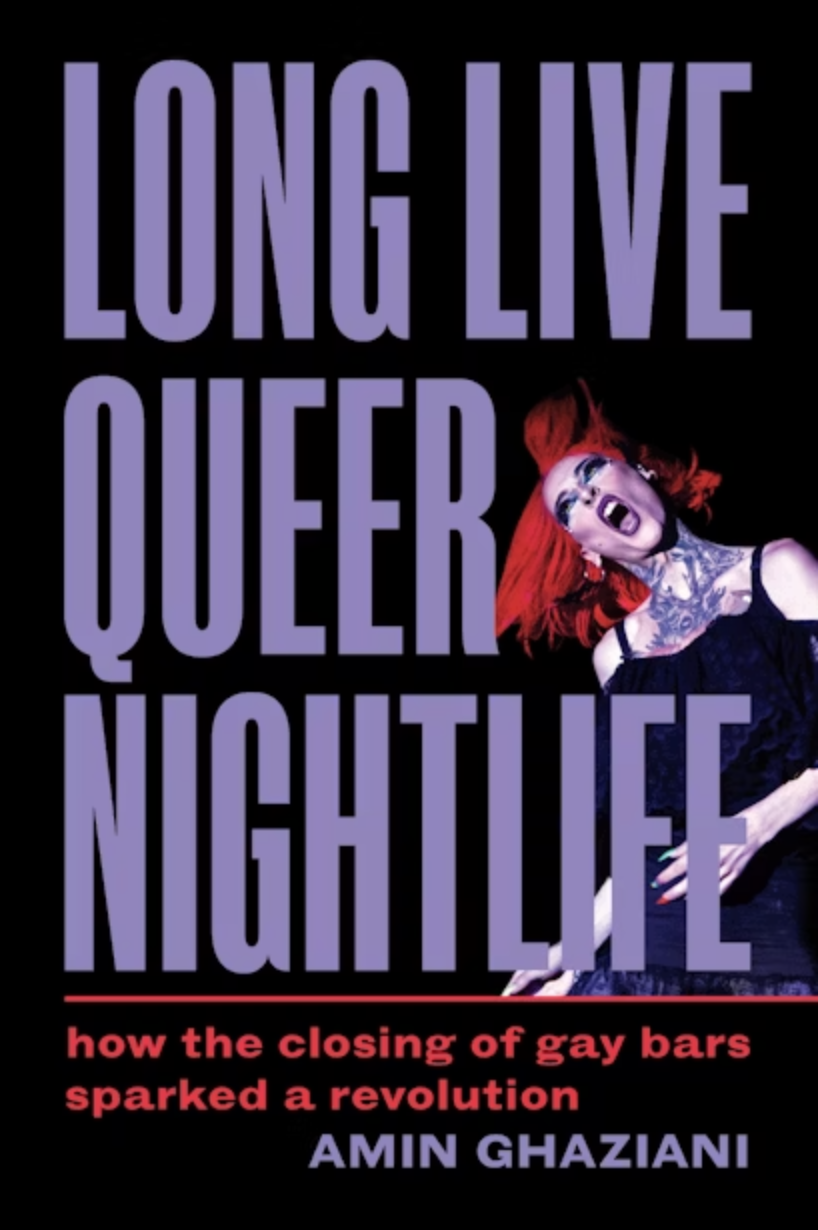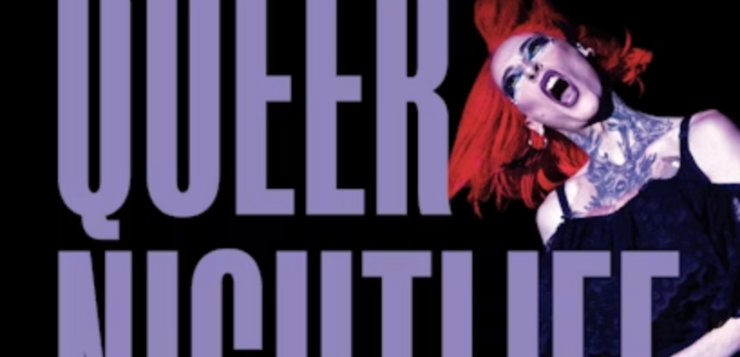
BLOOD LOSS
A Love Story of AIDS, Activism, and Art
by Keiko Lane
Duke University Press. 312 pages, $26.95
There have been many books and memoirs written about the AIDS crisis, but few are as well-written and moving as Keiko Lane’s Blood Loss. As a sixteen-year-old Okinawan-American teenager in Los Angeles in 1991, Keiko Lane joined Queer Nation and ACT UP. She was drawn to the edginess and immediacy of those organizations and the queer men and women who filled them. In stunning prose, Lane describes the struggles of her friends and comrades, their bravery, their terror, their anger. In the process of helping them and loving them, she discovers herself. Now, decades later, she addresses what she calls “the problem of memory,” and does so with exquisite skill and extraordinary honesty. “I remember the feelings,” she tells us simply, and her memory does not fail.
One of the remarkable things about Lane’s story is her lack of hesitation at such a young age. She inserts herself into the lives of some of her ailing colleagues and their political actions without fear or second-guessing, and describes with intimate detail what she calls, in an evocative phrase, “the ferocity of queer commitments.” Her descriptions are riveting and sometimes painful to read, but they are essential, for the agony of queer bodies at the time is something that cannot be forgotten. Through her involvement in these organizations and the lives and deaths of her comrades, she tells us, she was “saving herself.” We see in her scorching prose as a teenager becoming an adult, observing, feeling, loving, losing love. We see her witnessing, and surviving.
What Keiko Lane ultimately shows us, and with great skill, is that truth—the difficult, bloody, gritty truth—is beautiful, as Keats famously maintained, no matter what is being revealed. This is a memoir that deserves to be widely read.
H N Hirsch
 LONG LIVE QUEER NIGHTLIFE
LONG LIVE QUEER NIGHTLIFE
How the Closing of Gay Bars Sparked a Revolution
by Amin Ghaziani
Princeton Univ. Press. 288 pages, $29.95
Stories about the decline of the gay bar had led Amin Ghaziani to expect his sabbatical in London in 2018 to be a dull affair. He was surprised to discover that queer nightlife was more lively, and more nuanced, than the drastic headlines would suggest. The big city still offers plenty of options for LGBT people out looking for fun. Endowed with research grants, Ghaziani, an American sociology professor at the University of British Columbia, interviewed 112 Londoners—from city officials to party organizers to party goers—over a period of several years. The result is a beautiful book replete with attractive photographs of London’s club scene just before the pandemic.
Ghaziani argues that LGBT nightlife has partially shifted from the “bar scene” to thematic parties, or club nights, that cater to segments hitherto underserved by established bars. The bars’ heavy fixed-cost business model has given way to initiatives that rent out spaces (and their liquor license) by the night, and get the word out through social media. Ghaziani sees this trend as subversive and anti-capitalist, though I think it could also be seen as an example of Schumpeter’s “creative destruction,” exemplifying a gig economy dynamic. The more segmented, flexible market allows a variety of spaces to flourish that focus on the many subcultures that make up the mosaic of British society and its queer community.
That said, I was struck by the extent to which Ghaziani highlighted the specifically racial and ethnic characteristics of these LGBT events. At times in his interviews he seems to challenge some people’s claims that ethnicity was unimportant. When one man repeatedly states that “I just see myself as British,” Ghaziani seems determined to dismiss his efforts to distance himself from an ethnic category, commenting: “I wonder if our need to belong is so deep and so fundamental that it can motivate some who are multiracial to identify as White.” On the other hand, there is a curious deficit in this book of talk about sex, which is, after all, a lot of what “queer nightlife” is about.
Yoav Sivan






